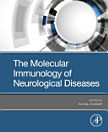Biosynthetic Technology and Environmental Challenges
關於這本電子書
關於作者
Dr. Sunita Varjani is a scientific officer at Gujarat Pollution Control Board, Gandhinagar, India. She holds an M.Sc. degree in Microbiology (2009) and PhD in Biotechnology (2014). Her major areas of research are industrial and environmental microbiology/biotechnology and molecular biology. Dr. Varjani has authored 35 publications, and has won several awards and honours, including the Young Scientist Award at the AFRO-ASIAN Congress on Microbes for Human and Environmental Health, New Delhi (2014) and best paper awards for oral presentations at national and international conferences in 2008, 2012 and 2013.
Dr. Binod Parameswaran is currently working as a scientist in the Microbial Processes and Technology Division of the CSIR-National Institute for Interdisciplinary Science and Technology, Trivandrum, India. He obtained his PhD in Biotechnology from Kerala University, Trivandrum in 2008 and then completed his postdoctoral studies in the area of lignocellulosic biofuels at the Korea Institute of Energy Research, Daejeon, South Korea. He has written 85 publications. In 2001 he received the Young Scientist Award from the International Forum on Industrial Bioprocesses (IFIBiop) and in 2014 he received the Kerala State Young Scientist Award.
Dr. Sunil Kumar is a senior scientist in the Solid and Hazardous Waste Management Division of CSIR-NEERI, Nagpur, India. Dr. Kumar has extensive experience in the field of solid and hazardous waste management. His major research interests include environmental science and engineering. He has written 80 publications/communications, including three books and eight book chapters. He has acted as an industrial consultant for various projects in Indian/international Industries. He is a member of the editorial board of Bioresource Technology and associate editor of the Journal of Hazardous, Toxic and Radioactive Waste, and Environmental Chemistry Letters.
Prof. Sunil K. Khare is currently Professor of Biochemistry at the Department of Chemistry, Indian Institute of Technology Delhi (IIT Delhi), where he also received his PhD. He carried out postdoctoral research at the National Food Research Institute, Tsukuba, Japan and was DBT visiting scientist at Northern Regional Research Laboratory, Illinois, USA. He has been working in the area of solvent-tolerant and halophilic classes of extremophiles and their enzymes, investigating the structural and molecular basis of their stability. He has written 135 publications, including 12 book chapters and numerous conference publications, and holds 2 patents.






